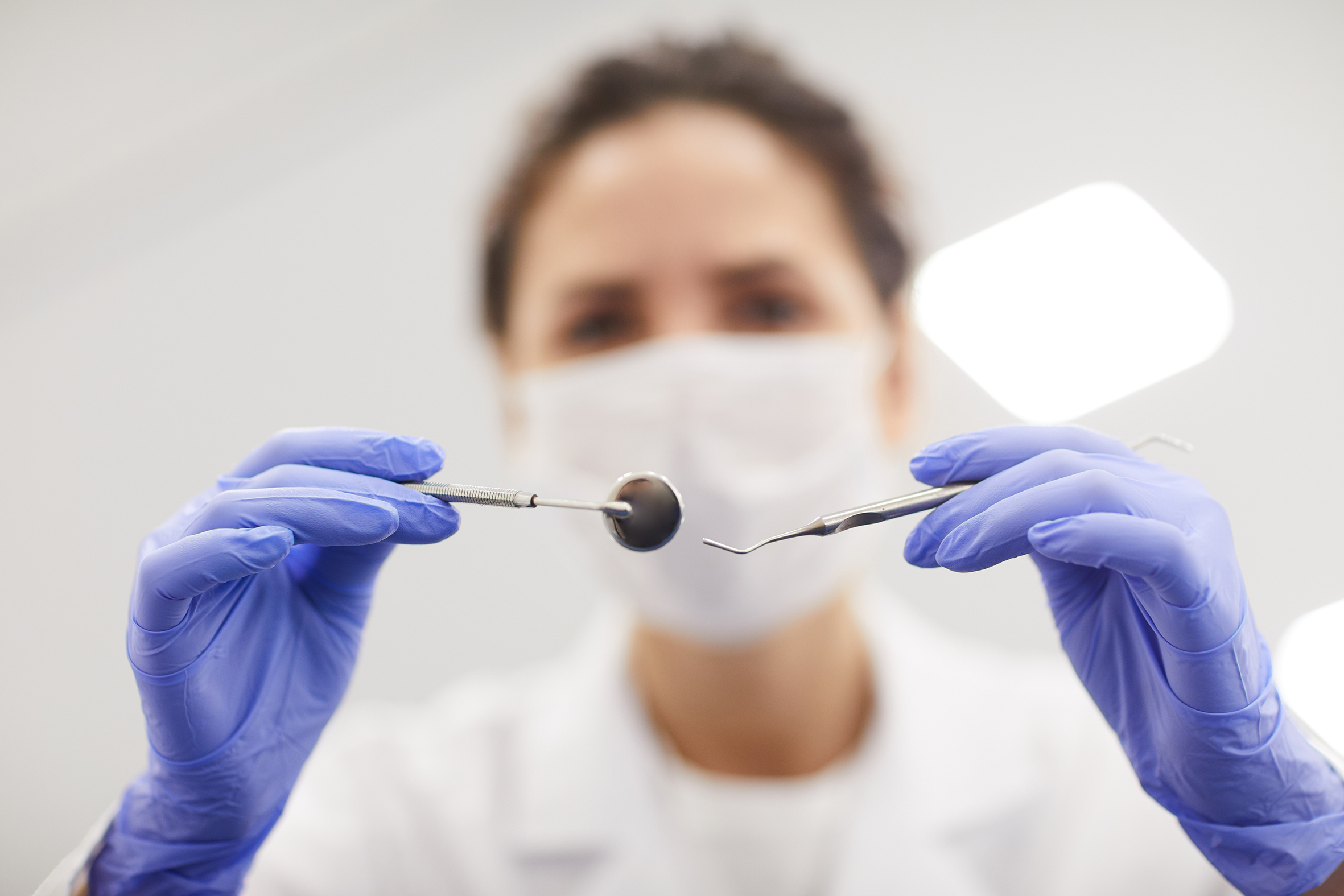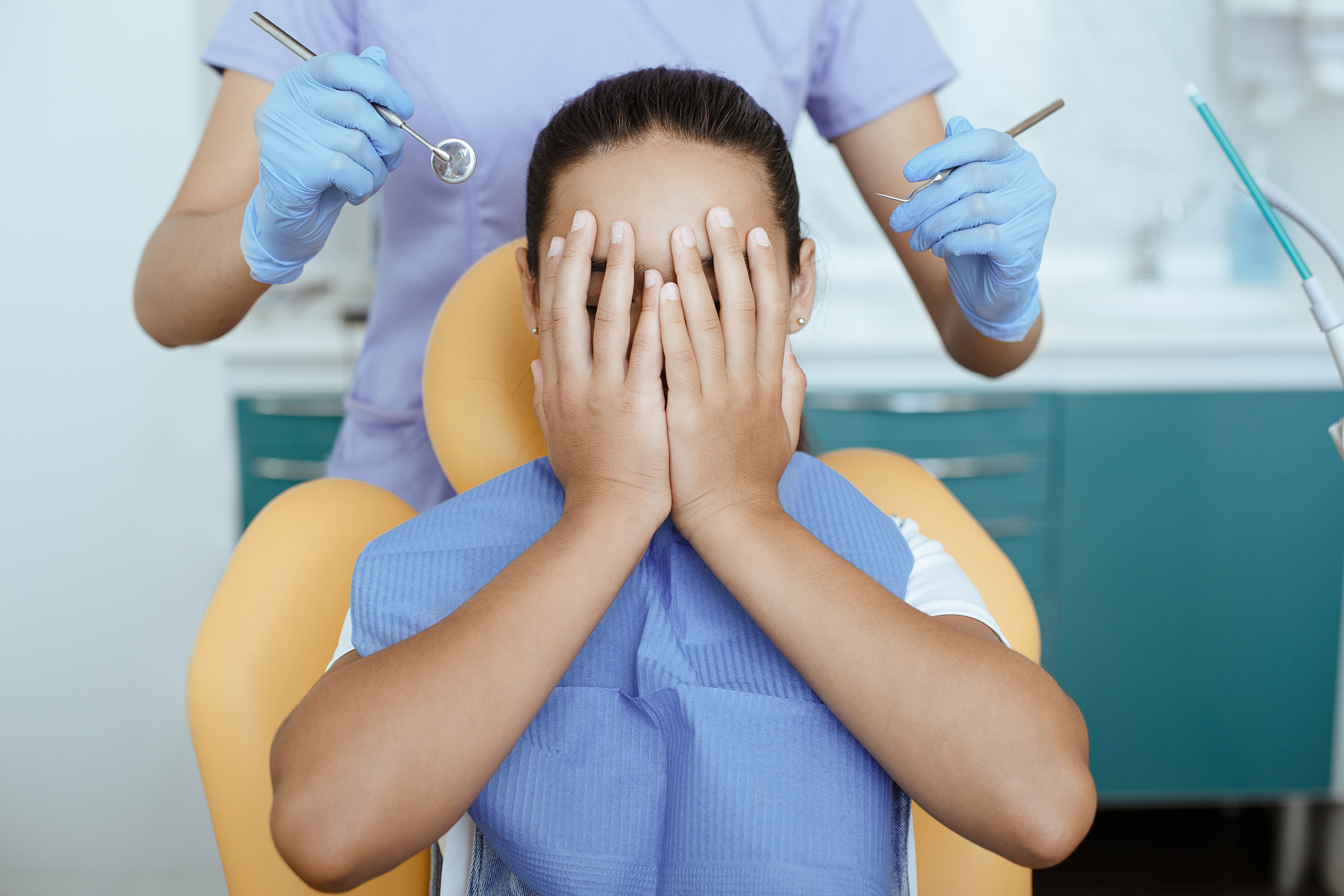It’s a worry many of us suffer from and although a genuine phobia of dentists is rare, a touch of anxiety is quite normal. The NHS Adult Dental Health Survey (2009) found that over 40% of adults are moderately or extremely anxious about dental procedures and 15% are extremely anxious just sitting in the dentist’s waiting room; but why?
We’ve done a little research to try to explain why anxiety around dental treatments and even just routine check-ups is so common. We think it’s important to know about where fear comes from and why you might have negative feelings about visiting us. Knowledge is power and the more we know about ourselves, the better we can manage our feelings.
So, without further ado, here are our top five reasons why people might be afraid of visiting their dentists.
1. It’s learned
The Association for Psychological Science says that fears of experiences like going to the dentists is a learned behaviour. They write, “Fear can be learned through direct experience with a threat, but it can also be learned via social means such as verbal warnings or observing others’. As humans, we are social animals who learn from people around us. If, as a child we see that our parents are frightened, we may learn to take up their fears. Scared parents who take their children to the dentist can easily influence their kids to adopt their worries. One of the best ways to break the cycle of fear for the next generation is to go for regular check-ups as an adult, even if you aren’t experiencing dental problems. This shows your children that there is nothing to be afraid of, it’s not something to be avoided and it’s not a negative experience.
You might think that your children haven’t seen you being anxious about visiting the dentist, they’ve never witnessed your fear, but just knowing that they have to go, and you never do is enough to plant a doubt in the mind of a child. They will subconsciously ask themselves “why don’t mum or dad go to the dentist like I do?” Which will naturally lead to “What’s wrong with the dentists?” So, you see, children don’t need to see your fear to suspect it exists. They are much more intuitive than we realise.
2. It’s in the air
Some people find themselves afraid specifically of having their airways blocked in the process of visiting their dentist. On paper it seems like an odd idea, I mean who has ever accidentally had their mouth and nose covered during a check-up? But it’s not a logical fear, it’s an instinctual one.
Part of our instinctual behaviours that have evolved with us and been passed down through generations, is to avoid situations where either of our air passages could conceivably be blocked. It makes sense. We instinctually avoid putting objects over or near our faces that air can’t pass through. The fear is over what could happen, not what is likely to happen. The subconscious idea that a dentist could slip and put their hand over your mouth and nose is what can cause the anxiety. It’s a ridiculous thought though, when has this ever happened and how could it ever happen? As we say, it’s not a logical thought or a conscious one, but once we know it exists, we can process that fear, label it as absurd and move on.

3. We’re vulnerable
The very position we must be in during dental appointments makes us feel psychologically vulnerable. Having someone looming over us as we lie on our backs, sort of suspended in mid-air is a most unnatural position for us humans. We tend to only lie on our backs when we are extremely relaxed and feeling safe, such as when we are sleeping, lounging, or sunbathing.
We would never walk into a job interview, hand over a CV with trembling hands and when asked to take a seat spread out on the carpet like a beached starfish. When we are anxious, we sit upright or stand. Again, it’s our instinct to engage our muscles and be in a position from which we can easily move off from in case we need to retreat.
When the body releases adrenaline, the fight or flight instinct can kick in, which feeds our muscles extra power in case we are in danger. The problem is that our bodies cannot tell the difference between real and perceived threat. Your dentist is obviously not a real threat. We’re really very nice. But the truth is that lying in a recumbent position while experiencing anxiety can be psychologically confusing.
So, what’s to be done? We recommend taking a couple of deep breaths once you’re in position in the dentist’s chair and saying if it’s not a comfortable position for you. We want you to be as calm as possible during your appointment so whatever we can do to help relax you, we will. We don’t mind if you’re imagining that you’re on a beach in Jamaica and the bright lamp is the warm sun. Go for it! Do whatever works to relax your body and your mind will follow.
4. It’s the mouth
The thing about visiting the dentist is that they always want to look in your mouth. This won’t be new information to you, but we mention it because the mouth is a particularly sensitive part of the body. The mouth is also a very personal part of the body. It is where your thoughts become words which are used to communicate to others. There are not only teeth inside the mouth but the soft tissues inside it are very sensitive too. The gums and the tongue are full of nerve endings and for those of us who have accidentally bitten their tongue, we know how much the slightest injury can hurt. That is why we fear pain in that area in particular. It’s a very sensitive part of our bodies.
In addition to being a sensitive area, we also associate our mouths with intimate acts. Kissing is the obvious one and eating and speaking are all activities we use our mouths for.
When we associate our mouths with intimacy and familiarity it’s very difficult to accept someone you don’t know well invading it, particularly with instruments and tools. We understand that it can feel strange to have a near-stranger’s hands in your mouth, but a good dentist will do their best to put you at ease and alleviate the tension that such a strange encounter can create. They’re not just amazing with dentistry, they are masters of small talk. So, freely complain about the weather if you wish. We won’t mind and we’ll happily rabbit on about the roadworks in return to make your appointment as friendly and relaxing for you as possible.
5. It’s the head teacher’s office effect
Have you ever been called to the head teacher’s office when you were at school? Or maybe your boss asked to see you at work and wouldn’t tell you why beforehand. Sitting in the waiting room at the dentists can feel just like that. Anxiety over whether or not you’re going to be in trouble is a very unsettling feeling. Many people put off going to the dentist for routine appointments because they are afraid of getting told off by their dentist or don’t want to get bad news about their dental health.
It’s a legitimate fear because dentists do want the best for your teeth and it’s their job to advise you accordingly to make the most of your smile. With that being said, no dentist should make you feel inferior or guilty because of the state of your teeth. A good dentist will make you feel comfortable, but informed and at Kennett Road Dental Practice, we strive to always put you at ease during every stage of your experience.
Dental anxiety can make maintaining your oral health difficult. We sympathise, but we also wish to assure you that every member of our team at Kennett Road Dental Practice is trained and ready to make your experience as worry-free as possible. You do not need to be afraid of attending routine appointments or receiving dental treatments. We want the best for you and your smile, and we’ll find a way to achieve results together.




